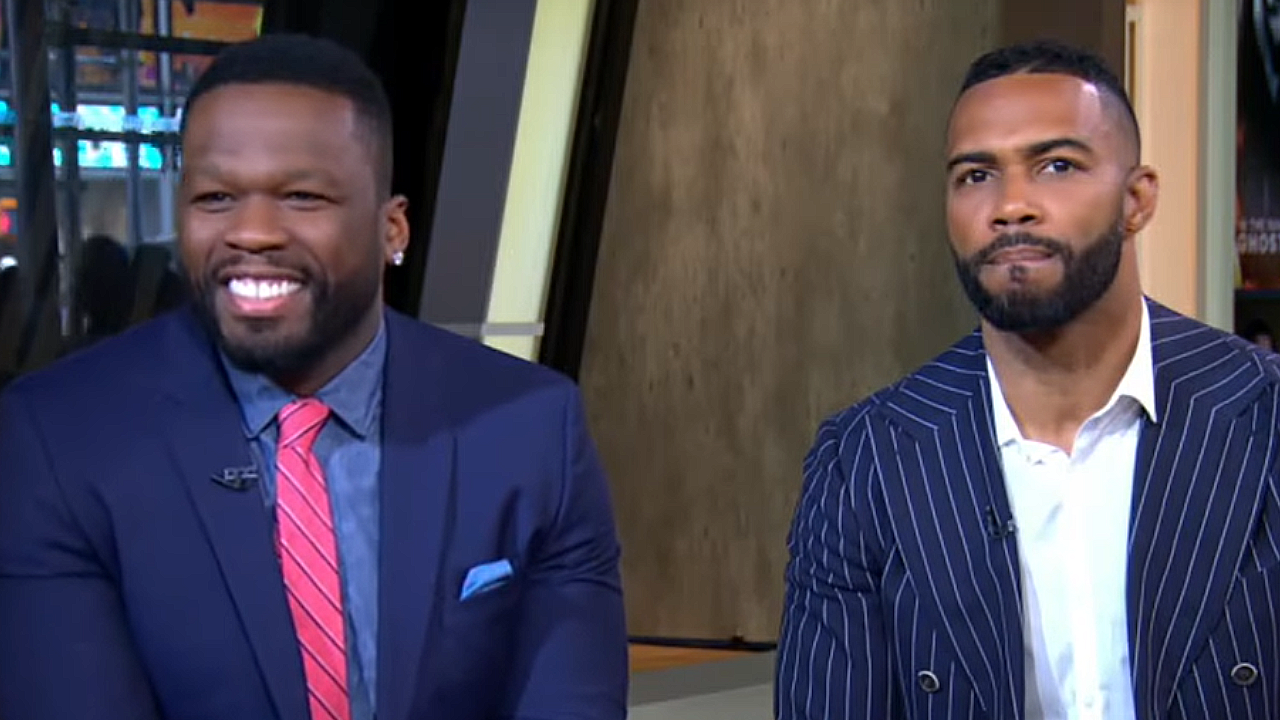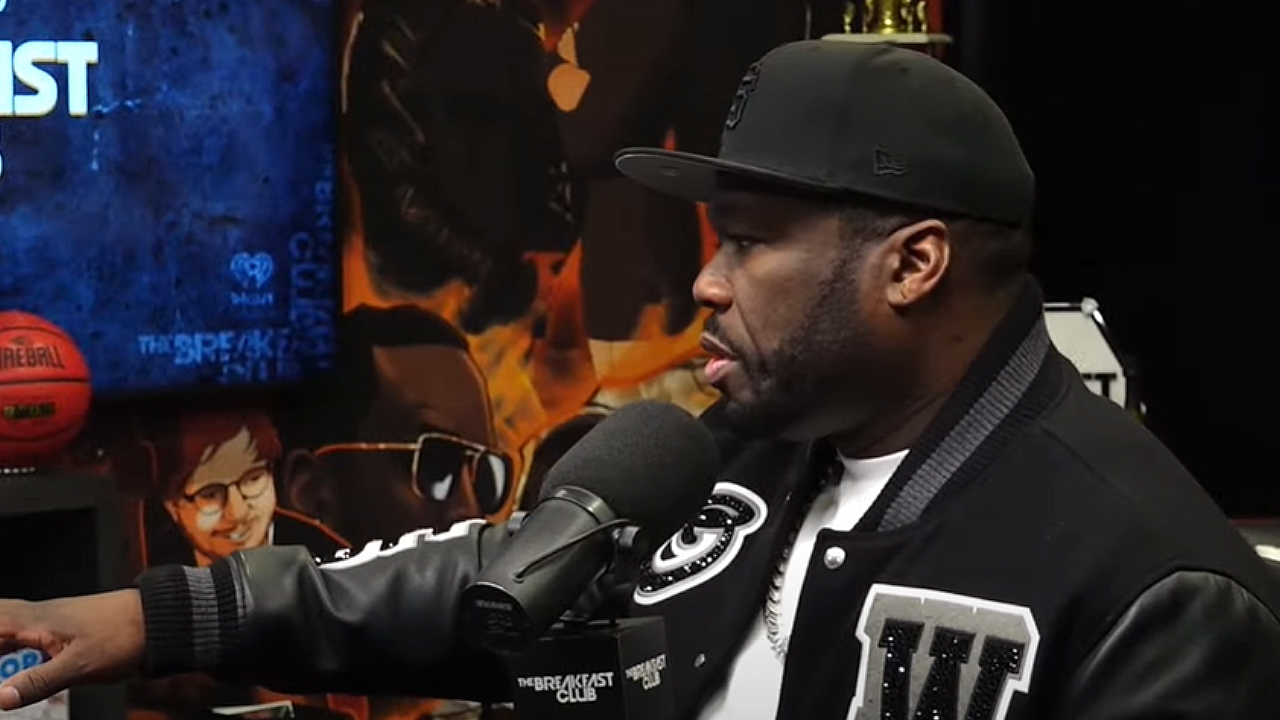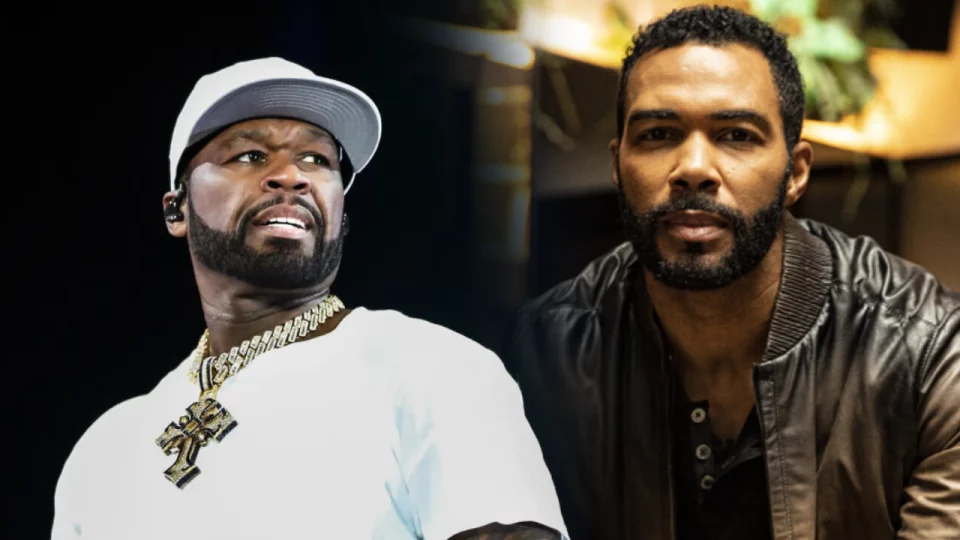The dynamic between Curtis “50 Cent” Jackson and Omari Hardwick, once one of the most successful partnerships in television through the STARZ series Power, has taken a noticeable downturn in recent years.
Once known for their collaboration on the successful series that brought intense drama and suspense to millions, their relationship is now strained, with both parties voicing frustration and disappointment over the terms and trajectory of their partnership.
Table of Contents
Building the Power Universe: A Partnership Begins
In 2014, Power premiered on STARZ, quickly becoming a hit, thanks largely to its riveting storyline, complex characters, and strong performances. Omari Hardwick, who played the lead character James “Ghost” St. Patrick, quickly became the face of the series. His character, a drug dealer turned businessman, navigates the blurred lines between legality and criminality, embodying the conflicting identities of a man struggling to escape his past while being pulled back into it.
Meanwhile, 50 Cent not only acted in the show as Kanan Stark, one of Ghost’s antagonists but also served as an executive producer. The two forged a partnership that would go on to be instrumental in Power’s immense popularity.

Hardwick’s performance was widely praised, and the show’s success helped both him and 50 Cent gain new levels of acclaim. Power became a cultural phenomenon, attracting millions of viewers and spawning several spin-offs. For Hardwick, it was the role that pushed him into the spotlight, while for 50 Cent, it cemented his reputation as a television producer capable of delivering compelling content to audiences. However, as the series progressed, tensions over money and recognition began to emerge between the two.
Financial Disputes and Claims of Underpayment
One of the primary factors contributing to the rift between Hardwick and 50 Cent has been financial. Hardwick has been vocal about his compensation on Power, claiming that his salary did not reflect the value he brought as the show’s lead actor. In 2022, during an interview on The Pivot podcast, Hardwick revealed that he earned around $150,000 per episode, which he felt was inadequate given his central role. This salary, according to Hardwick, fell short of what he believed he deserved as the “face” of the series, especially considering the cultural and financial success of Power.
Furthermore, Hardwick shared that he had to borrow money from 50 Cent at one point, highlighting the financial strain he felt during his time on the show. “I still haven’t made what I should have made,” Hardwick stated, expressing his frustration that even as the series flourished, his financial compensation did not match the demands and expectations placed on him. He mentioned that despite his dedication to Power, he never felt fully financially rewarded for his work.
50 Cent’s Response: “He Overvalues Himself”
50 Cent, known for his outspoken nature, did not shy away from addressing the situation. During a recent appearance on The Breakfast Club, he shared his perspective on the rift, stating that he believes Hardwick “overvalues himself.” According to 50, Hardwick’s lack of subsequent high-profile projects suggests that he is not the big draw he perceives himself to be, arguing that if Hardwick were indeed in high demand, his career would have taken a similar trajectory to other major stars after a hit series.

50 Cent’s comments underscore his belief that Hardwick’s value to Power has been inflated, at least in Hardwick’s own mind. While he acknowledged that Hardwick was a central figure on Power, he questioned why Hardwick has not maintained a comparable level of success outside the series. According to 50 Cent, Hardwick’s claims create a narrative that unfairly suggests 50 himself, or STARZ, intentionally withheld proper compensation, an idea that he firmly refuted.
The Broader Issue of Value and Recognition in Television
The dispute between Hardwick and 50 Cent is not unique to them but reflects a broader industry issue surrounding value, compensation, and recognition. In Hollywood, the earnings of actors and creative professionals are often subject to scrutiny, with disparities between perceived value and compensation frequently at the center of tension. Actors, especially on shows that become unexpectedly successful, sometimes feel underpaid, leading to renegotiations and, at times, strained relationships with producers or networks.
One key issue in Hardwick’s case is the difference between what he expected as the show’s star and what was actually agreed upon. Negotiating compensation in the entertainment industry can be complex, with contracts often locked in before a show’s success can be fully gauged. For Hardwick, the success of Power was not fully reflected in his paycheck, and this disparity seems to have led to a sense of resentment.
The Power Universe: A Legacy Built Amidst Controversy
While their personal rift continues to be a topic of public interest, the legacy of Power itself remains uncontested. The show’s success has allowed STARZ to capitalize on the story’s potential, spawning spin-offs like Power Book II: Ghost, Power Book III: Raising Kanan, and Power Book IV: Force. Each of these spin-offs has achieved varying levels of success, expanding the Power universe and proving the lasting appeal of the story and its characters.
Despite the success of these spin-offs, Hardwick’s departure from the series and the subsequent falling-out with 50 Cent have added a layer of tension to the Power universe. Fans of the series continue to express disappointment at the unresolved issues between Hardwick and 50 Cent, while others feel that the two should have set aside their differences to continue collaborating on future projects.
